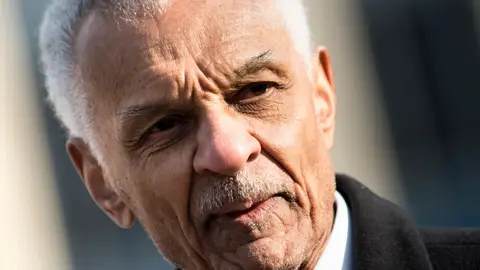Rev. C.T. Vivian, Iconic Civil Rights Leader, Dies At 95

UPDATE:
Funeral services for Civil Rights icon Rev. C.T. Vivian, who died last Friday (July 17) at age 95 have been set for Thursday July 23 at 11 a.m. at Atlanta's Providence Missionary Baptist Church.
Providence's Pastor Emeritus Gerald Durley is set to deliver the eulogy. “I really want to highlight the man I met when I was 18,” Durley said. “C.T. was not a sad man. I want to tell the story of the virtues of a man who lived his life, uplifted the community and the African American community through justice and equality,” he told the Atlanta Journal-Constitution
Due to the coronavirus pandemic, the services will be open only to the family and will be livestreamed on Atlanta station WSB-TV, according to the AJC.
Funeral arrangment plans for Vivian's friend and collaborator in the Civil Rights Movement, Rep. John Lewis, who died hours later, are incomplete, his family said. However, memorials are expected to take place in Washington D.C., Atlanta and his hometown of Troy, Ala.
PREVIOUS:
Rev. C.T. Vivian, the civil rights hero who marched alongside Rev. Martin Luther King Jr., in some of the most challenging days of the movement died Friday at his Atlanta home of natural causes, the Associate Press confirmed,
VIvian’s career in civil rights goes back more than 70 years. His first demonstrations were sit-in protests in Peoria, Ill., in the 1940s.
He joined King’s army of justice crusaders not long after the Montgomery Bus Boycott of 1955-56 began.
He was one of the primary organizers of the Freedom Rides that strove for integration throughout the South and brought multicultural groups of people together to become nonviolent protest activists.
“This is what made the movement; our voice was really heard. But it didn’t happen by accident; we made certain it was heard,” Vivian once said in an interview, according to the AP.
He served as the national director of the Southern Christian Leadership Council from 1963 to 1966, three of the organization’s most crucial years, supervising 85 of its chapters and overseeing protest activities, training other activists, and putting together voter registration strategies.
He remained a part of the SCLC after King’s 1968 assassination and took over its leadership for a short time in 2012, being credited for bringing it to a new relevance after years of stagnation.
“He has always been one of the people who had the most insight, wisdom, integrity and dedication,” said fellow civil rights legend and former U.S. Ambassador Andrew Young, according to the AP.
Cordy Tindell Vivian was born in 1924 in Howard County, Missouri, but moved with his mother to Macomb, Ill., while still a child. According to the AP, he organized his first sit-in protests while studying theology at American Baptist College in Nashville.
Joining with King, he became a visual figure in the SCLC, stemming from a 1965 incident in which he was speaking up for voting rights in Selma, Ala., when Dallas County Sheriff Jim Clark hit him in the mouth while television cameras were rolling.
“You can’t keep anyone in the United States from voting without hurting the rights of all other citizens,” Vivian said defiantly to Clark. “Democracy’s built on this. This is why every man has the right to vote, regardless.”
It was one of many images from the Civil RIghts years in which nonviolent protesters, seeking voting, education and housing rights were brutalized by police determined to thrust them back.
“There must always be the understanding of what Martin had in mind for this organization,” Vivian said in a 2012 AP interview. “Nonviolent, direct action makes us successful. We learned how to solve social problems without violence. We cannot allow the nation or the world to ever forget that.”
In 2008, he started the C.T. Vivian Leadership Institute, an Atlanta-based nonprofit community development organization.
In 2013, President Barack Obama awarded him with the Presidential Medal of Freedom, the country’s highest civilian honor.
“There wasn’t an institution in America that wasn’t changed by what we did,” Vivian was quoted as saying later, according to the Atlanta Journal-Constitution. “But the victory isn’t completely won yet. We still have to save America. Black people have to save America. It can’t save itself. Four hundred years of slavery has proven that.”





